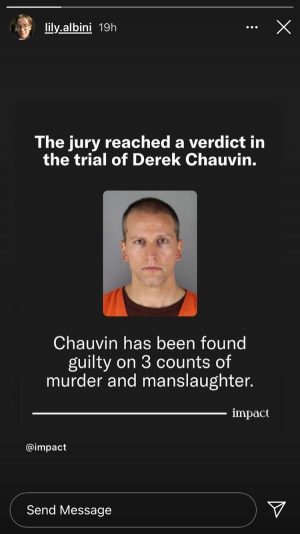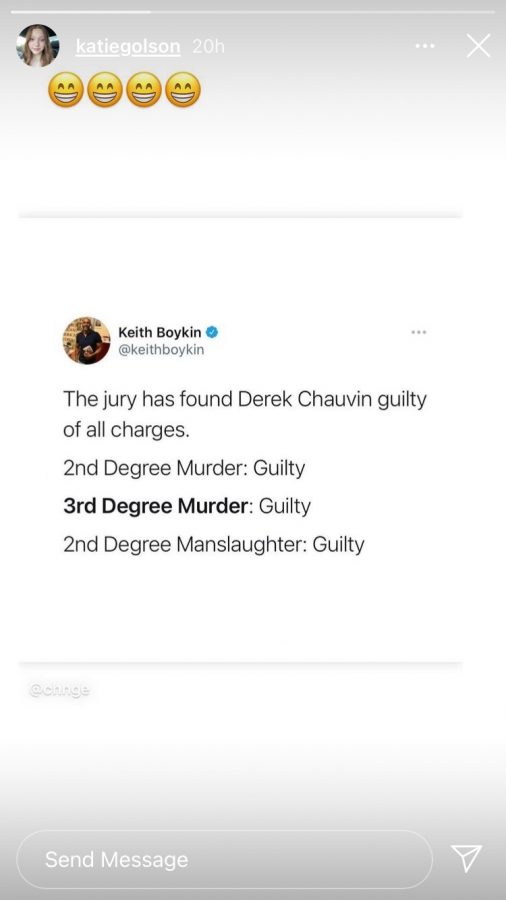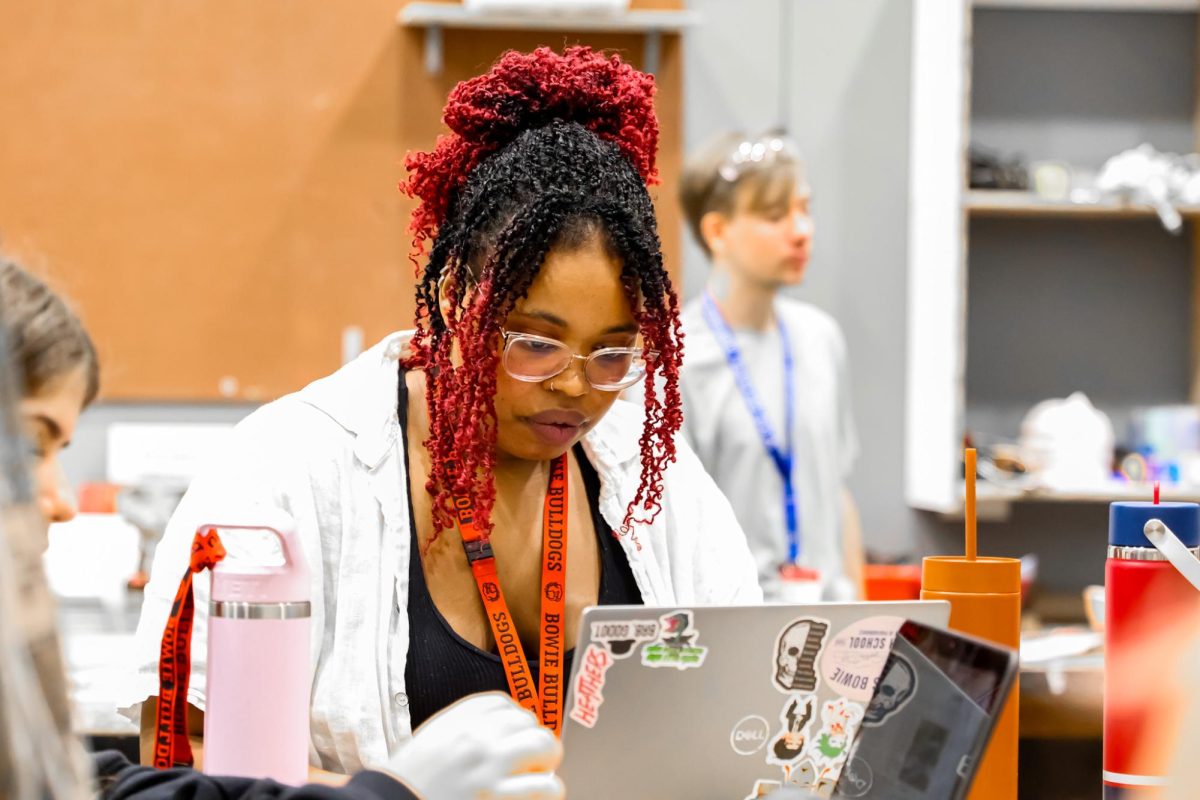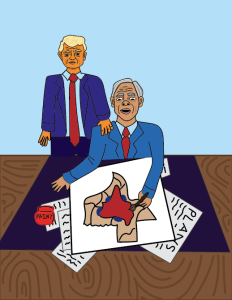Derek Chauvin guilty of murder in George Floyd’s death
Senior Katie Golson shares to her social media the verdict of George Floyd’s case. Derek Chauvin was convicted on all charges brought against him for the death of George Floyd.
April 23, 2021
After nearly 330 days of protesting and public outrage, ex-Minneapolis police officer Derek Chauvin was convicted on all charges brought against him for the death of George Floyd. Floyd was killed on 25 May, 2020 after Chauvin pinned his neck for over nine minutes.
On April 20, Chauvin was convicted of second-degree unintentional murder, third-degree murder, and second-degree manslaughter. As this news spread throughout the country, history teacher Carlen Floyd, as well as other Bowie students and staff members, reflected on the verdict of this court case.
“I cried when I heard the verdict on public radio when I was driving home after school,” C. Floyd said. “I felt such an overwhelming sense of relief and gratitude and joy in this historic moment.”
After 10 hours of deliberation, the jury made its decision to convict Chauvin of all charges, including the second-degree murder charge. The state sentencing guidelines recommends 12.5 years in prison for a conviction of unintentional second-degree murder, for someone with no criminal history.
“I found a lot of things were going through my mind when I heard the verdict,” junior Claire Procyk said. “I was relieved firstly that Chauvin was charged with murder. This step towards taking accountability is an important one.”
At the end of the closing arguments, Chauvin waived his right to have the jury decide on different aggravating factors, which are factors that have the possibility to exacerbate the severity of a crime. For this case specifically, these include the fact that children were present during the murder of George Floyd, the “particular cruelty” of Chauvin’s policing, and the abuse of his position of authority. Judge Peter Cahill will decide these if these factors apply at a later date.
“I was relieved that he was found guilty,” history teacher Patricia Maney said. “However, the most important thing to look for now is the actual sentencing phase which will begin in about eight weeks. A judge will sentence him, not the jury.”
According to the Proceedings of the National Academy of Sciences, police violence is a leading cause of death for young men in the United States. About one in every 1,000 Black men in the United States are killed by police.
“The decision of this court case is a big step in the justice system against police brutality,” Caddell said. “Police are here to protect and serve, not be the judge, jury, and executioner.”
After Floyd’s death, over fifteen million Americans around the country protested against injustices brought on the Black community. These protests were a part of the Black Lives Matter movement, one of the largest movements in United States history.
“I thought about the time it even took to get [to the verdict],” Procyk said. “All the protests and work required to just get to this point shows how failed our system is.”
According to Philip Stinson at The Henry A. Wallace Police Crime Database, only five non-federal police officers from 2005 to Floyd’s death were convicted of murder in a shooting that occured while on-duty. Several other officers had convictions that were later overturned.

“This verdict shows our justice system is getting better,” Caddell said. “Too many times have officers gotten away with murder, and this case shows that it will not be tolerated anymore.”
C. Floyd further advances the point made about the government system by emphasizing the positive consequences that have occurred since the verdict was decided.
“Already we’re seeing renewed interest by both elected officials and citizens across the nation. Local, state and federal officials are looking more carefully at police procedures, and ways to improve training and tactics,” C. Floyd said. “This verdict deserves to be compared to other historical events that brought awareness of injustice, and then resulted in legislative and bureaucratic changes.”
Many, including Procyk, believe that this decision has led to a positive direction for the future of other cases of police brutality against African Americans and the Black Lives Matter movement as a whole.
“This verdict is definitely a step in the right direction, but it does not mean we have achieved justice,” Procyk said. “Even though this is an extremely important step towards taking accountability, the work towards achieving justice continues on.”
With the conviction of Chauvin, the trail of three other officers (Kueng, Lane and Thao) involved in the murder of George Floyd are set to began on 23 Aug. 2021. Because of this, Caddell believes this topic of discussion isn’t over, and he hopes for a better future to prevent this from occurring again.
“As big of a step it is, it’s sad at what the cost it came with: George Floyd, Breonna Taylor, and countless other lives taken from this world,” Caddell said. “We are seeing a major turning point in American history right here and now, and I can only hope it changes for good.”
Additional Reporting by Sammie Thompson and Anna Holme.










